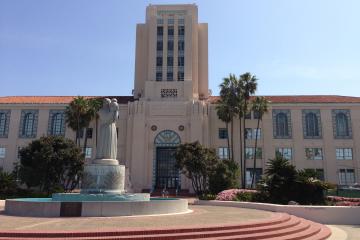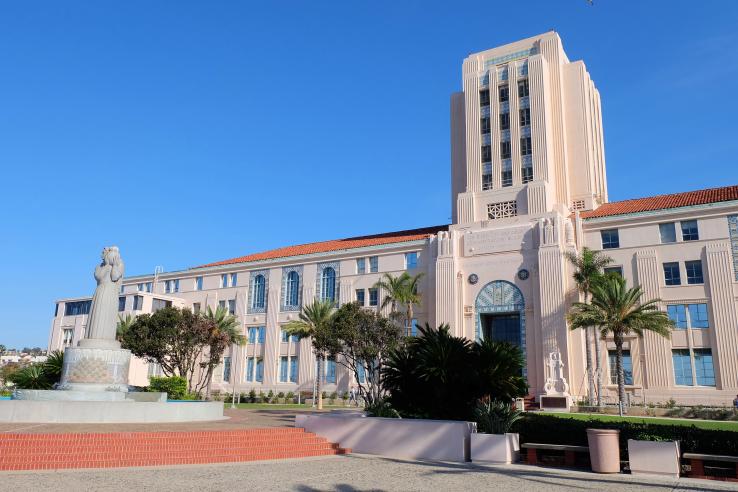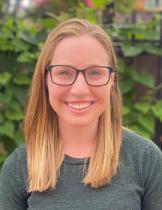
LEVER Partner Spotlight: Ricardo Basurto-Dávila on the County of San Diego’s Shallow Rent Subsidy program evaluation

In this Partner Spotlight series, J-PAL North America and Results for America highlight the government leaders and decision makers who are harnessing data, evaluation, and evidence to advance economic mobility via our Leveraging Evaluation and Evidence for Equitable Recovery (LEVER) programming.
Through the Evaluation Incubator, LEVER supports government agencies seeking to use randomized evaluation to generate rigorous evidence and inform pressing policy decisions. In this piece, we continue our previous conversation with Ricardo Basurto-Dávila, the Chief Evaluation Officer in the County of San Diego’s Office of Evaluation, Performance and Analytics. Ricardo shares his experience participating in the Evaluation Incubator and explains how San Diego is leveraging randomized evaluation to advance evidence on a homelessness mitigation program for older adults while capitalizing on federal funding opportunities.
Ricardo, your team is evaluating a rental subsidy program for older adults in the County of San Diego. Can you tell us more about that program?
Older adults are one of the fastest-growing groups of people experiencing homelessness for the first time. The County has been interested in trying something innovative to prevent more older adults from becoming homeless.
Working with that motivation, the County leveraged money from the American Rescue Plan Act to create the Shallow Rent Subsidy for Older Adults program, managed by the County’s Department of Homeless Solutions and Equitable Communities. It provides a $500 monthly rental subsidy and light case management to participating households for 18 months. We knew more people would apply than we could serve, so we used a lottery to select participants, which enabled us to design a randomized evaluation.
What are you seeking to learn through the randomized evaluation?
We hope the program can increase housing stability and prevent homelessness among low-income households with a head of household 55 years of age or older. I say “we hope” because it’s a pilot program. We’ve seen rental subsidy programs work in other places and contexts, but this is one of the first that focuses on older adults—we don’t know what its impacts will be or whether it will work differently for certain people or under certain circumstances.
That information will be important for us in the future. Right now, we're leveraging money from the federal government (via the American Rescue Plan) to support the program, but that funding isn’t permanent. We wanted to take a very robust approach to evaluating this pilot so that when it ends, we’ll have useful information to decide what to do.
How has the LEVER Evaluation Incubator advanced your team’s work on the Shallow Rent Subsidy study?
For one, the technical assistance from J-PAL staff has been amazing in helping us serve more people than first planned without compromising the integrity of the research or creating biases. After we’d planned the study, additional funding was allocated to the program to expand the number of people who receive the subsidies—which is really great, but also required us to think carefully about how to adjust the research design and randomization process. J-PAL North America, and specifically our technical assistance team, Amanda and Alejandro, have been amazing thought partners in helping us figure out how to incorporate changes into a randomized assignment.
More recently, we were matched with J-PAL affiliated researcher, Day Manoli (Georgetown), whose academic partnership will help us design the analysis plan and eventually interpret findings. Day has great ideas, and he’s going to be of huge value to the project. I was a little worried at first that maybe the expectation was that we would hand over the keys to the project and just watch Day do all the work. This wouldn’t have worked for us, since we have purposefully built internal capacity to do these studies. That has not been the case at all: J-PAL has been incredibly flexible and really willing to understand where we are and what we need. Every single meeting we’ve had has been about that.
What advice would you give other governments about engaging with researchers?
Engage as soon as you can! Randomized evaluations take a lot of preparation and setup before the program begins. Researchers and governments are also working under different timelines and goals. It’s helpful to communicate early and often to ensure goals are aligned.
The Evaluation Incubator offers selected government partners up to four months of technical support, flexible project funding, and connections to expert researchers to develop randomized evaluations and answer policy-relevant questions. LEVER is accepting Letters of Interest for the 2024 Incubator from now through April 1, 2024.
Additional opportunities to engage with LEVER include:
- Evaluation capacity building offerings: Visit the LEVER webpage to learn more about a range of courses, trainings, and workshops tailored to the unique needs of governments with varying levels of familiarity with data and evaluation.
- LEVER email updates: Fill out the LEVER interest form to stay up to date on opportunities and receive additional information about LEVER programming.
Related Content

LEVER Partner Spotlight: Ricardo Basurto-Dávila on the County of San Diego’s research priorities and culture of learning

Building research partnerships to create moves to opportunity



